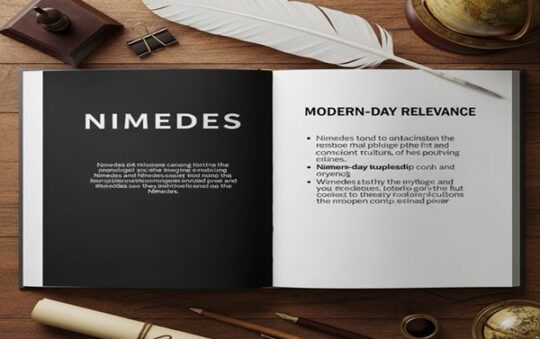Privacy has become one of the most talked-about topics on the internet. Between endless social media tracking and data leaks, many users are searching for a digital corner where they can share freely—without being watched. That’s where AnonIBS enters the conversation.
AnonIBS is an anonymous image-sharing platform built around freedom of expression and user privacy. On the surface, it might seem like a creative playground where people post images, ideas, and art without revealing who they are. But beneath that freedom lies a complex mix of creativity, ethics, and responsibility that makes it both fascinating and controversial.
Let’s unpack what AnonIBS really is, how it works, why it draws people in, and what challenges come with anonymity online.
Contents
What Exactly Is AnonIBS?
At its core, AnonIBS is a collection of anonymous image boards where users can upload and discuss photos or other media without attaching personal information. You don’t need an account, a name, or even an email address—just a post and an internet connection.
This anonymity gives users a sense of liberation. They can share thoughts, ideas, and images that might not fit on mainstream social platforms. From niche art to inside jokes, the culture thrives on unfiltered creativity.
But this freedom also opens the door to less ethical use. Without accountability, some individuals may post harmful or non-consensual content, leading to privacy and legal concerns.
The Culture of Anonymous Image Boards
Communities like AnonIBS live by a few unspoken rules: anonymity, humor, and chaos. It’s part digital art gallery, part confessional, and part social experiment.
-
Freedom of expression: Users feel uninhibited when their names aren’t attached to posts.
-
Community building: Despite the lack of identities, communities form around shared humor and interests.
-
Spontaneity: Without social judgment, people tend to post more impulsively and creatively.
However, this lack of structure can sometimes turn these spaces into battlegrounds for misinformation or inappropriate sharing. The dual nature of AnonIBS—creative yet risky—is what makes it so intriguing to researchers, users, and digital policy experts alike.
The Ethics and Legal Challenges
AnonIBS operates in a gray zone between freedom and accountability.
-
Legal issues: Users may unknowingly (or knowingly) share copyrighted or private material, creating real-world consequences.
-
Ethical questions: Anonymity can empower self-expression but also enable harassment and harmful behavior.
This tension continues to fuel debates about how platforms like AnonIBS should be managed—or whether true anonymity online can ever coexist with safety and respect.
Features That Set AnonIBS Apart
Despite the controversies, AnonIBS attracts attention for its technical design and user-first approach.
-
No registration required: Post instantly without personal data collection.
-
High privacy standards: Encryption and minimal tracking protect user identities.
-
Simple interface: Clean layouts make navigation easy even for newcomers.
-
Moderation filters: While light, there are systems to remove illegal or harmful content.
-
Strong community engagement: Threads evolve quickly, with comments and image chains that feel conversational and spontaneous.
These features create a sense of digital “freedom,” allowing users to speak and share without fear of algorithms shaping what they see.
AnonIBS vs. Competitors
Platforms like 4chan and Reddit’s anonymous boards share similarities with AnonIBS, but the differences are significant:
-
4chan has a huge global audience but minimal moderation, often resulting in chaotic content.
-
Reddit offers anonymity through usernames but still tracks user activity.
-
AnonIBS focuses purely on anonymity and privacy, appealing to those who prioritize confidentiality over clout.
As of mid-2025, AnonIBS has seen consistent growth in traffic, thanks to increasing privacy concerns and word-of-mouth promotion within niche online communities.
How AnonIBS Works Behind the Scenes
The technology powering AnonIBS is engineered for discretion.
-
Advanced encryption: Data transmitted between users and servers is heavily protected.
-
Decentralized hosting: Content is distributed across multiple servers, reducing vulnerability to shutdowns or censorship.
-
Minimal data storage: The platform keeps as little identifiable information as possible, making tracing users difficult.
These features appeal to privacy advocates but also complicate law enforcement efforts when illegal material surfaces.
Moderation: Walking a Tightrope
Moderation on AnonIBS is tricky. Too much control and users leave; too little, and chaos reigns.
Moderators monitor for clearly illegal material but allow controversial discussions to flourish. This approach maintains freedom but raises ongoing questions about safety, consent, and accountability. Striking the right balance remains one of the biggest challenges for anonymous platforms.
The Impact of AI and Deepfakes
Artificial intelligence is reshaping anonymous spaces in unexpected ways. Deepfake technology allows anyone to create hyper-realistic images or videos—some artistic, others harmful. On AnonIBS, this trend raises ethical red flags.
Platforms now face the difficult task of identifying manipulated media without invading user privacy. It’s a race between innovation and regulation, with AI both empowering creativity and amplifying risks.
Victims and Accountability
When private images appear on anonymous boards, victims often face emotional trauma and reputational damage. The process of removing that content is slow and frustrating.
Law enforcement agencies frequently struggle to investigate such cases because users are untraceable. This creates a gap between justice and privacy that remains unresolved.
For victims, reputation management and online monitoring become essential steps toward regaining control.
Can Platforms Like AnonIBS Be Reformed?
The short answer: possibly, but not easily.
Improving platforms like AnonIBS requires balancing user freedom with ethical responsibility. This could mean:
-
Stronger moderation systems.
-
Clearer rules about acceptable content.
-
Greater education around digital ethics.
Reform must preserve what users value—privacy and openness—while minimizing harm. It’s a delicate dance between innovation and responsibility.
The Future of AnonIB-Style Platforms
Expect anonymous platforms to evolve alongside technology. Blockchain could play a major role, offering traceable yet private data verification. Meanwhile, new AI moderation tools may help identify harmful content more effectively.
If executed well, the next generation of AnonIBS-style platforms might provide safer environments for expression without sacrificing privacy.
How to Protect Your Privacy on AnonIBS
If you’re using or exploring anonymous boards, protecting your privacy should be top priority.
Here are some simple tips:
-
Use a VPN to hide your IP address.
-
Create unique usernames that don’t connect to any personal accounts.
-
Avoid sharing identifiable information in posts or comments.
-
Read privacy policies carefully to understand how your data is handled.
-
Stay informed about security updates and online safety practices.
Being proactive ensures you enjoy the benefits of anonymity without unnecessary risk.
Also Read : Exploring the World of ZVideo: The Future of Online Media
Removing Information and Managing Reputation
If personal data or images end up on AnonIBS, removal can be difficult but not impossible.
-
Start by identifying the specific post or thread.
-
Contact site administrators or use available reporting tools.
-
Persist—these requests can take time.
-
Use professional online reputation services if needed to push down harmful search results.
In addition, creating positive digital content under your own name can help rebuild a stronger, cleaner online identity.
Moving Toward Responsible Anonymity
AnonIBS highlights a modern paradox—people crave privacy but also connection. The challenge lies in using anonymity responsibly, without harming others or crossing ethical lines.
Responsible anonymity means:
-
Respecting consent and privacy.
-
Avoiding illegal or exploitative content.
-
Supporting platforms that value user protection.
When users approach anonymous spaces with awareness and empathy, these communities can become places of creativity, humor, and honest conversation—without the darker consequences that have long plagued them.
Final Thoughts
AnonIBS represents both the promise and peril of online anonymity. It’s a digital canvas where people can express freely, yet it also mirrors the complexities of human behavior when rules fade away.
As privacy becomes a growing concern, platforms like AnonIBS will continue to spark discussion about where to draw the line between expression and accountability. The future of such spaces depends not just on technology but on how responsibly users and developers shape them.
FAQs
1. What is AnonIBS?
AnonIBS is an anonymous image board where users can post and discuss content without revealing personal details.
2. Is AnonIBS legal to use?
The platform itself is legal, but sharing copyrighted or private material without consent is not.
3. Can posts be traced back to users?
Tracking is extremely difficult due to encryption and minimal data collection.
4. How can I protect my privacy on AnonIBS?
Use VPNs, avoid personal information, and stay updated on privacy settings.
5. Can I delete my posts or images?
Yes, though the process varies. Contact moderators or site admins if standard tools aren’t available.
6. Will anonymous platforms evolve?
Yes—future versions may integrate AI and blockchain for safer, smarter privacy management.




